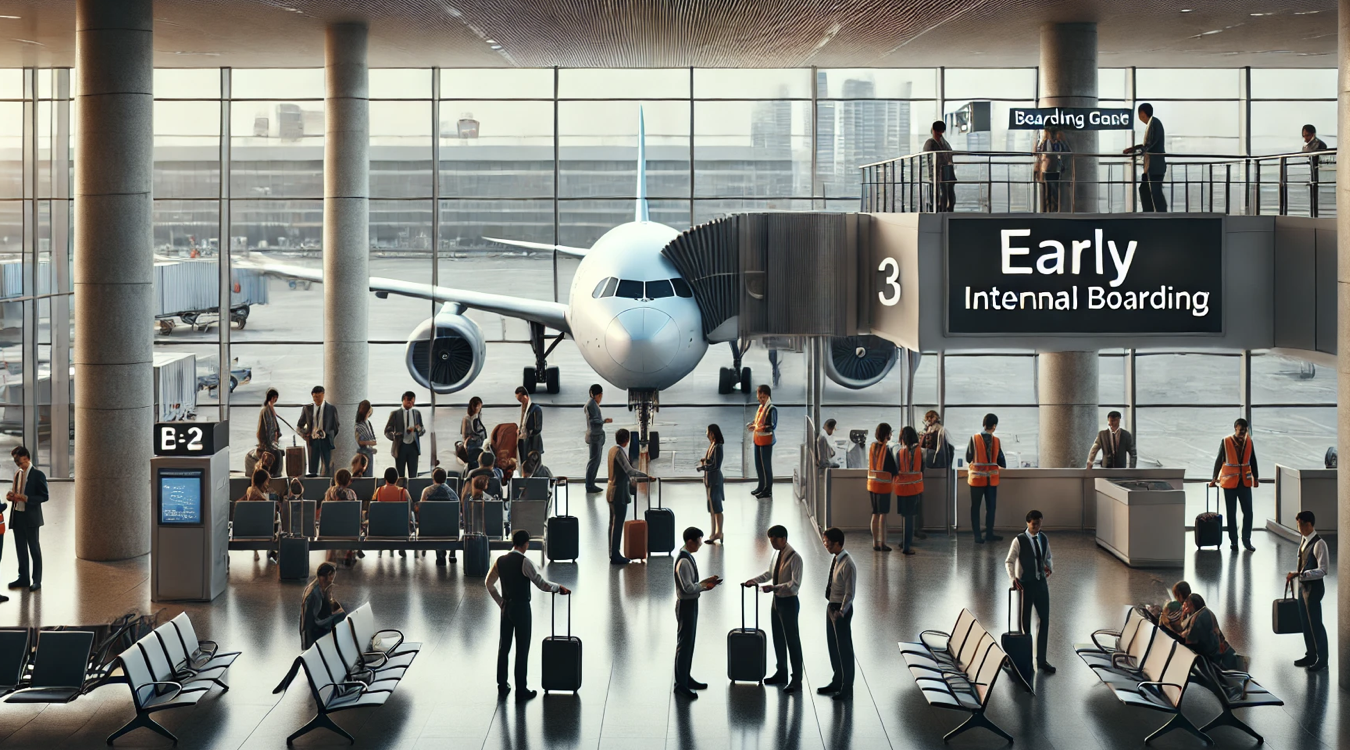Early Boarding by Ground Staff
Flying international turnaround flights, when the airplane arrives earlier than scheduled, I often see ground staff at the airport urging to start boarding even though the flight is ahead of schedule.
Usually, the turnaround time for international flights is at least one hour. It depends on the airline policy, but one hour is typically just enough time to deboard passengers, clean the aircraft, refuel, and finish boarding. Passenger boarding usually begins about 40 minutes before departure for international flights and 25–30 minutes before departure for domestic flights. This accounts for the additional baggage passengers often have and the time needed to process identification.
Whether it’s domestic or international flights, I often see ground staff at the airport wanting to start boarding whenever they can. However, allowing early boarding can sometimes result in passengers sitting on the aircraft for a long time, waiting for the remaining passengers.
If the ground staff wants to start the boarding process earlier and asks the flight crew or purser for permission, the crew might want to check first if all passengers have completed the check-in process at the counter. Since ground staff knows whether all booked passengers have checked in, the crew can simply ask them for confirmation.
Sometimes, allowing early boarding without verifying this can lead to delays, as the remaining booked passengers who haven’t checked in will still need to be accounted for. The crew might then have to wait for these passengers until the last call. Since passengers wouldn’t have expected early boarding, this can lead to increased strain on the crew and longer wait times for passengers who boarded early.
Even if all passengers have finished check-in and are standing by at the gate, another issue to address with ground staff is the need to adjust the TOBT (Target Off-Block Time). In airports with A-CDM (Airport Collaborative Decision-Making) procedures, early boarding doesn’t guarantee early departure unless the aircraft obtains a new TOBT from ATC. This request can be made by ground staff or the operations center, but not by pilots.

Why Do Ground Staff Push for Early Boarding?
I don’t have any friends or contacts in ground operations to ask about this, but it seems likely that ground staff or operations personnel want to complete their tasks as quickly as possible. Once all passengers have boarded, they are effectively released from their duties, regardless of whether the aircraft departs immediately or not.
Occasionally, requests to ground staff—such as checking if all passengers have arrived or adjusting the TOBT—don’t proceed as expected. For instance, ground staff might confirm they’ll adjust the TOBT and begin boarding, but some staff, who could be described as crafty or inattentive, pretend not to understand what the crew is asking after boarding has started. In other cases, they might not bother to change the TOBT because, after initiating the boarding process, they have little to lose.
This problem is often compounded because ground staff are usually subcontracted personnel and not part of the airline’s direct workforce. This dynamic can lead to misalignment in priorities between the airline and ground staff.
Final Thoughts
While early boarding might seem like a way to improve efficiency, it needs proper coordination to avoid unnecessary delays and passenger inconvenience. Ensuring all passengers have checked in and making timely TOBT adjustments are crucial steps that ground staff and flight crews should prioritize. Without these, early boarding can become a source of frustration rather than an operational advantage.